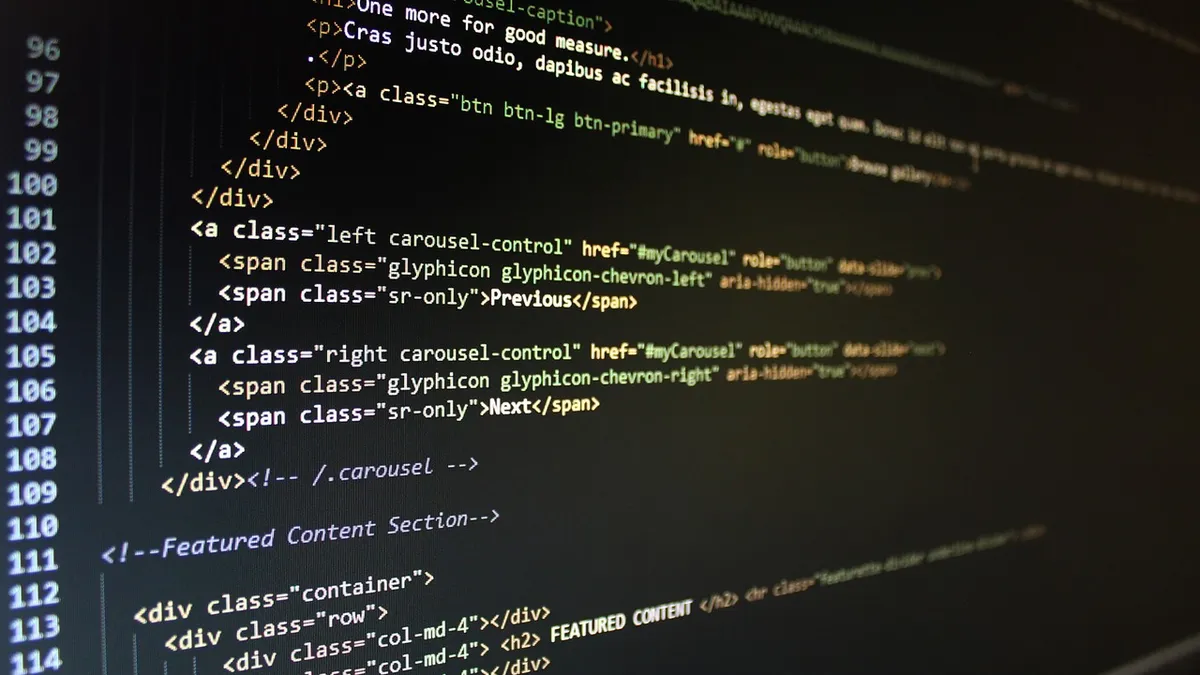Less than three years in, California-based coding academy Lambda School has emerged as one of the increasingly popular online alternatives to traditional postsecondary education.
Lambda and other entities like it are marketed as self-paced and more affordable than a typical college or university. Their pitch is alluring — in many cases, students face no upfront costs for their education. Instead of tuition payments, several such schools use a financing tool called an income-share agreement (ISA) that allows students to repay the cost of attendance as a percentage of their income after finishing the program.
The model has attracted attention. Lambda arose from Y Combinator, the same startup accelerator that launched Airbnb and food delivery service Doordash. It has raised at least $48 million from the likes of GV, formerly Google Ventures, the online behemoth's investment arm, and Sound Ventures, actor Ashton Kutcher's company.
But despite Lambda School's rising acclaim, it has not been approved as an educational entity in the state, according to the government agency that authorizes private institutions there, the Bureau for Private Postsecondary Education (BPPE).
The resulting skirmish highlights the difficulties in regulating institutions that fall outside the scope of traditional higher ed.
Last year, BPPE told the school it must cease operations in California and fined it $75,000 because it did not have state approval. Lambda officials said they immediately began the process of registering with the BPPE and appealed its decision with the state attorney general's office, which did not respond to Education Dive's request for comment sent last week.
Lambda has continued operating, and it's unclear whether it will face additional penalties for not halting its operations as BPPE directed. The attorney general, which would enforce BPPE's order, has not yet done so, according to Cecilia Ziniti, Lambda's general counsel.
Internal bureau emails obtained by Education Dive indicate it will not be taking further action against Lambda. As one BPPE official wrote earlier this month: "Since we have received an application seeking approval, Lambda School is demonstrating a willingness to comply with the Bureau. The Bureau won't pursue further disciplinary actions in the case that an institution is attempting to come into compliance with state laws and regulations."
That means students who think they haven't gotten their money's worth from Lambda have few avenues for remedy from the state, given that the school is not yet under the bureau's purview.
In the interim, Lambda students have publicly complained about shoddy instruction at the school. Several anonymously described an unprofessional and sometimes racist environment to Business Insider in October, declaring it a "cult."
Who has jurisdiction?
Typical two- and four-year institutions must reach a set of benchmarks before they're allowed to operate, including meeting the standards of state and federal authorizers.
If they want federal aid, they must also secure an accreditor, an independent agency that serves as the gatekeeper of this funding and provides a check on an institution's academic quality and financial standing. Combined, these measures mean to ensure students receive a substantive education and can find adequate jobs after graduating.
Like most coding academies, Lambda has not wanted to take federal funding. And so it has not needed, nor has it attempted, to pursue accreditation. But the absence of state controls — one of the layers of scrutiny traditional colleges must seek out — leaves students vulnerable.
Ziniti, Lambda's counsel, maintained that operating without state approval won't affect Lambda's students.
"Education quality is not the issue," she told Education Dive.
But she did not address the lack of a safety net for students.
A BPPE official wrote in the internal emails: "We only have jurisdiction over approved schools. Therefore, any complaints students may wish to file with the Bureau will fall outside the Bureau's jurisdiction because Lambda School was not approved at the time of their enrollment."
Unclear rules
In July 2018, BPPE received a complaint that Lambda School was operating without its approval, Matt Woodcheke, a spokesperson with the California Department of Consumer Affairs, which oversees BPPE, said in an interview with Education Dive.
BPPE investigated and in March fined the school $75,000 and issued the citation calling for it to stop operations. The bureau identified at least one issue. Rather than use the ISA option, Lambda students can instead choose to pay upfront for their education, which the bureau noted at the time would cost them $20,000. Today, the school advertises that rate at $30,000. In California, institutions must register with the bureau if they charge more than $2,500 in tuition.
Under the ISA, Lambda students pay nothing upfront, and the company takes a share of their salary for a set period of time once they get a job paying at least $50,000 a year. Lambda does not reclaim more than $30,000, meaning some students might make payments for less than two years. Students pay nothing if they don't earn the required amount, and the deal expires within five years even if graduates of the program haven't paid anything.
However, the option to collect a large sum from students upfront is part of what put the school in the bureau's crosshairs.
Even the ISA option, which a majority of Lambda's some 2,500 students use to fund their studies, has been identified as a "legal gray zone" in the state.
The California Private Postsecondary Education Act does not explicitly address ISAs, according to a memo the state's Consumer Affairs Department sent to the bureau last February.
But state law and regulation specify that in their enrollment agreements with students, institutions must disclose the total cost of attendance. In the case of ISAs, these charges can't be outlined because they are based off of future income, which has yet to be determined.
However, a law firm Lambda used to determine whether ISAs are compatible with state laws and regulations found they were. The firm noted that the law forces institutions to disclose "only ... payment of the amount owed on enrollment" and not all costs associated with receiving an education. How much a student pays for their education depends on individual circumstances, the firm states.
ISAs have also proven controversial outside of California. Concerns that they are more restrictive or cumbersome than private loans have caught the attention of lawmakers, some of whom put forward federal bills to regulate ISAs separately from student loans.
But ISAs are still a popular financing tool among coding schools, and are even being used by some traditional universities. Purdue University became the first major American research institution to pilot ISAs in 2016. At least 40 colleges and "numerous" other education providers offer ISAs, a recent report by the Federal Reserve Bank of Philadelphia found.
How Lambda ran into trouble
In its citation, BPPE said it contacted Lambda via its website in December 2018 and didn't receive a response. When it issued the citation, BPPE ordered Lambda to stop recruiting and enrolling students, as well as to halt instruction and advertising, including on its website, and to disconnect any telephone numbers associated with the school.
Lambda did not obey. It informally appealed the decision on a phone call in May with bureau officials to discuss the fine and the order to stop operating. According to BPPE documents, the call did not yield any "new substantive facts." In July 2019, BPPE once again affirmed that Lambda needed to pay the $75,000 and cease operations. Lambda has not paid the fine while it appeals.
Lambda School did not initially register with the state because its former legal counsel advised that it did not have to, Ziniti said, adding that the former counsel misinterpreted California's rules and thought they didn't apply because Lambda didn't have a physical teaching space.
As soon as the school recognized its mistake, it immediately began the process of registering with the state, Ziniti said. She declined to elaborate on why Lambda has continued operating in light of BPPE's order to stop doing so, only noting that the attorney general's office has not yet enforced it.
Ziniti also declined to delve into the criticism that has been heaped on Lambda in news stories and on social media. Business Insider detailed how students claimed the instruction morphed without apparent reason, with projects and topics changing on the fly. And students said racist memes proliferated Lambda's Slack channels, the service the school uses to instant message. Additionally, most of the school's instructors lack diversity, they said. One student told Business Insider the teachers started referring to each other as "nazis."
In response to the allegations in the Business Insider story, Lambda sent Education Dive a written statement from its CEO Austen Allred. It reads, in part:
"Students come to Lambda School to change their lives, so our number one focus is making their experience as good as it can be. These are students' lives and we take that responsibility extremely seriously. We are constantly learning, listening to our students, and improving. From a curriculum standpoint as well, everything we do is aimed at optimizing a student's chance of success."
School officials have no timeline for when they expect the attorney general's office to make a decision, Ziniti said. Until then, they are operating freely.
"A key point for us is that we welcome the oversight," Ziniti said of the state. "We are willing to stand by a consumer-friendly model."


















